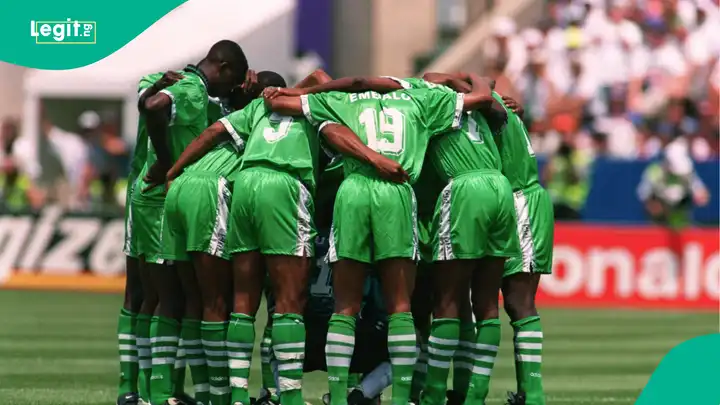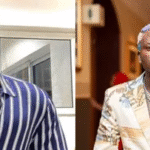Amokachi Reveals Amount Abacha Gave Each Super Eagles Player for Pulling Out of AFCON 1996

The Nigerian national football team, the Super Eagles, made headlines in 1996 when they withdrew from the Africa Cup of Nations (AFCON) held in South Africa. This decision was not driven by sporting concerns but by political tensions between Nigeria and South Africa at the time. Former Nigerian international Daniel Amokachi has shed light on the financial compensation each player received for agreeing to pull out of the tournament.
Background of the Withdrawal
“Beat the Pressure: A Comprehensive Guide to Lowering Blood Pressure Naturally.”
Buy book from Gumroad or Paystack
The 1996 AFCON was a highly anticipated tournament, and Nigeria, who had won the competition in 1994 in Tunisia, was considered a strong contender. The team had high hopes and was looking forward to showcasing their talents in South Africa. However, political issues overshadowed the sporting event. General Sani Abacha, the then military president of Nigeria, cited political tensions between the two countries as the reason for the withdrawal. The situation was exacerbated by the execution of nine minority rights activists in Nigeria, which strained Nigeria’s international relations further.
Compensation for the Players
Daniel Amokachi revealed in an interview on Brila FM that although players initially expected to receive $35,000 each based on a projected $5,000 bonus per match for seven matches, the actual compensation was $20,000 per player. This amount was paid as a form of compensation for the players’ agreement to withdraw from AFCON 1996.
Amokachi recounted how General Sani Abacha summoned the team for a discussion at Aso Rock, where the president explained the political context and assured them that the withdrawal was necessary for their safety and the nation’s interests. The players honored the directive despite their disappointment, understanding the gravity of the political climate.
Insights from Other Players
Former winger Tijani Babangida supported this account, adding that the government could not guarantee the team’s safety in South Africa amid the political tensions. He emphasized the difficult decision to prioritize national security over sporting ambitions.
Consequences of the Withdrawal
The decision to withdraw had lasting effects on Nigerian football. The Super Eagles faced a ban from the subsequent 1998 AFCON tournament in Morocco. Despite these setbacks, the team made a successful return to AFCON in 2000, which Nigeria co-hosted with Ghana.
The withdrawal also meant missing out on critical competitive experiences during what could be considered one of the best eras of Nigerian football. Social commentator Japhet Omojuwa later lamented the long-term impact, noting that entire generations of Nigerian footballers paid the price for the political decision, even though the team went on to win the Olympic gold medal in Atlanta in 1996.
Legacy and Reflection
The episode remains a poignant chapter in Nigerian football history, highlighting the complex interplay between politics and sports. While the financial compensation provided some solace to the players, the lost opportunities and potential titles during the AFCON tournaments of 1996 and 1998 left a mark on the team’s legacy.
In conclusion, Daniel Amokachi’s revelations provide an important perspective on the 1996 AFCON withdrawal, showing the personal and collective costs borne by the Super Eagles players amid a politically charged environment orchestrated by General Sani Abacha’s administration. The story underscores how external factors beyond the pitch can significantly influence the course of sports history.
💔 “She said she loved me. And for fifty-two years, I believed her.” 💔
Buy The Book "The Longest Lie: A Husband’s Journey Through Love, Betrayal, and Redemption" From Gumroad






